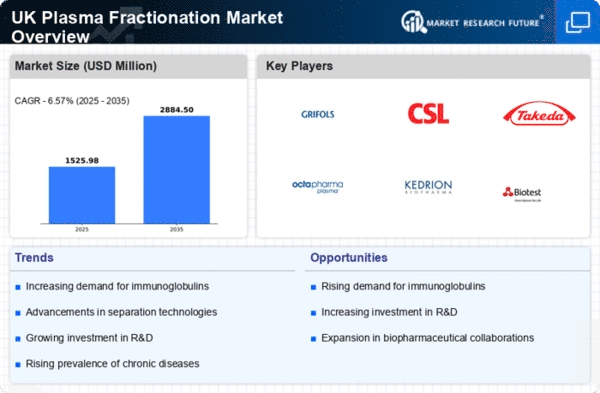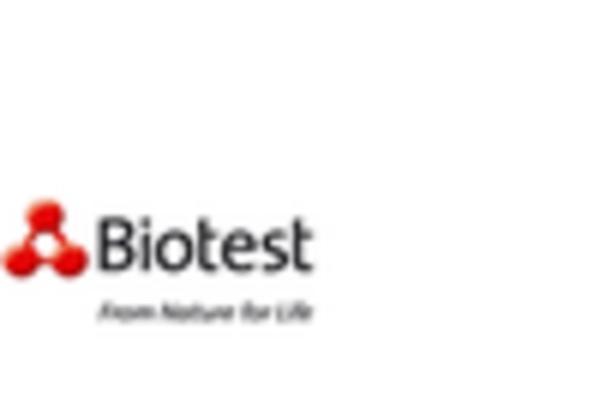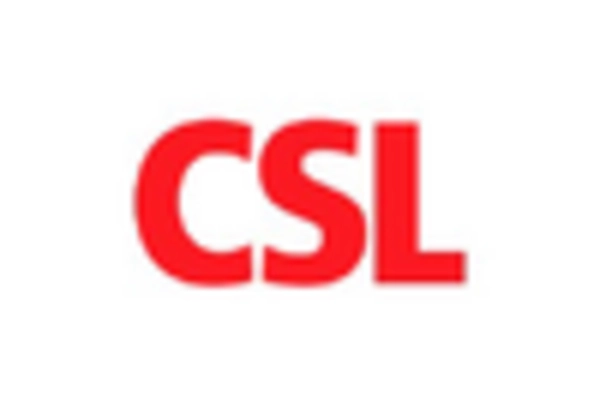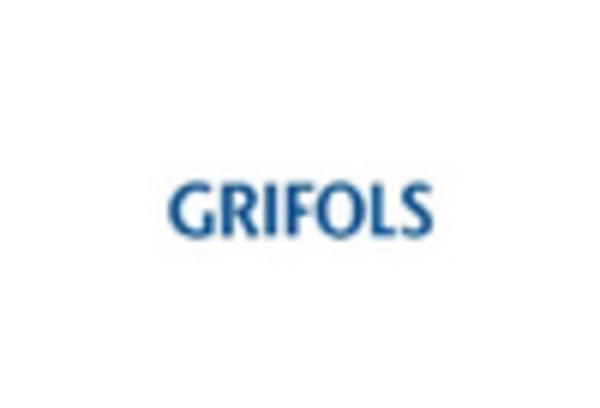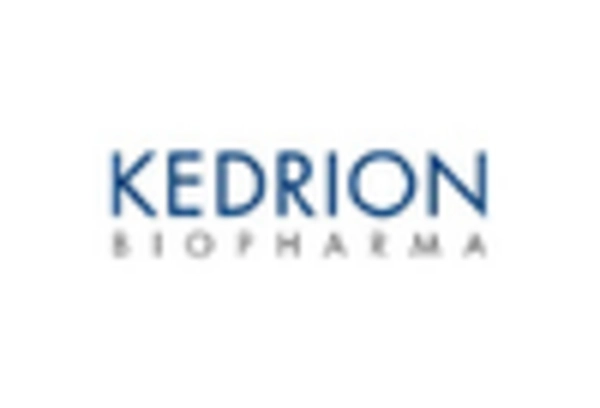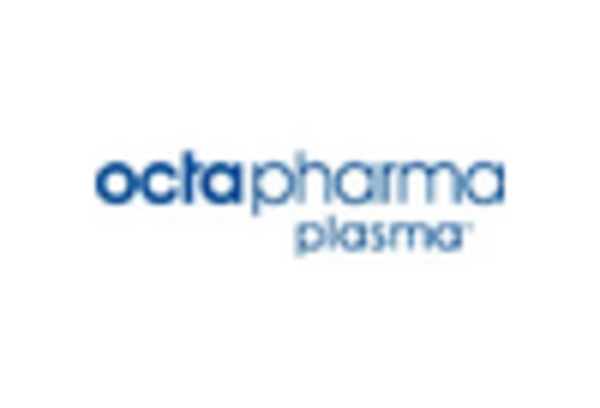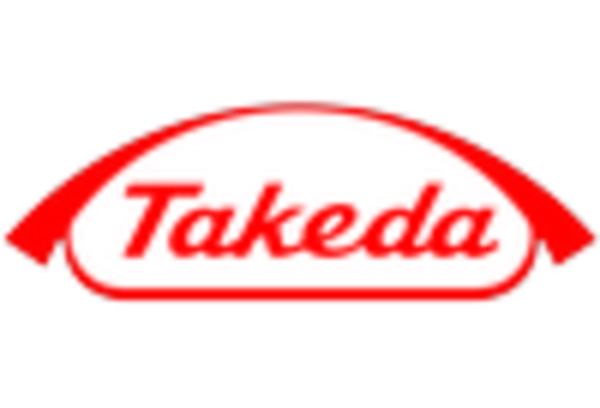Supportive Regulatory Framework
A supportive regulatory framework is essential for the growth of the plasma fractionation market. The UK regulatory authorities have established guidelines that facilitate the approval and monitoring of plasma-derived products, ensuring their safety and efficacy. This regulatory environment encourages innovation and investment in the sector, as companies are more likely to pursue the development of new therapies when they have clear pathways for approval. Additionally, the UK’s commitment to maintaining high standards in blood safety and quality further enhances the credibility of the plasma fractionation market. As regulations evolve to accommodate new technologies and therapies, the market is expected to benefit from increased confidence among stakeholders.
Increasing Prevalence of Chronic Diseases
The rising incidence of chronic diseases in the UK is a crucial driver for the plasma fractionation market. Conditions such as hemophilia, immune deficiencies, and other blood-related disorders necessitate the use of plasma-derived therapies. According to recent data, the prevalence of hemophilia in the UK is estimated at 1 in 5,000 males, indicating a significant patient population reliant on plasma products. This growing demand for effective treatment options is likely to propel the plasma fractionation market forward, as healthcare providers seek innovative solutions to manage these conditions. Furthermore, the increasing awareness of the benefits of plasma therapies among healthcare professionals and patients may further stimulate market growth, as more individuals seek out these life-saving treatments.
Advancements in Plasma Collection Techniques
Innovations in plasma collection techniques are transforming the plasma fractionation market. Enhanced methods, such as automated plasmapheresis, are improving the efficiency and safety of plasma collection. These advancements not only increase the yield of plasma but also reduce the time required for collection, making it more accessible for donors. In the UK, the introduction of these technologies has the potential to increase the number of plasma donations, which is critical given the rising demand for plasma-derived therapies. As the market adapts to these technological improvements, it is expected that the overall capacity for plasma fractionation will expand, thereby supporting the growth of the industry.
Rising Awareness of Plasma-Derived Therapies
The growing awareness of the benefits of plasma-derived therapies among healthcare professionals and patients is driving the plasma fractionation market. Educational campaigns and outreach programs are effectively informing stakeholders about the therapeutic potential of immunoglobulins, clotting factors, and albumin. As a result, more patients are being diagnosed and treated with these therapies, leading to increased demand. In the UK, the market for immunoglobulin therapy alone is expected to grow at a CAGR of 8% over the next five years. This heightened awareness is likely to encourage healthcare providers to incorporate plasma-derived therapies into treatment protocols, thereby bolstering the plasma fractionation market.
Growing Investment in Biopharmaceutical Research
The surge in investment in biopharmaceutical research is a significant driver for the plasma fractionation market. The UK government and private sector are increasingly funding research initiatives aimed at developing new therapies derived from plasma. This investment is expected to enhance the capabilities of plasma fractionation facilities, leading to the production of novel therapies that address unmet medical needs. In 2025, the UK biopharmaceutical sector is projected to reach a market value of £50 billion, with a substantial portion allocated to plasma-derived products. This trend indicates a robust pipeline of innovative therapies, which could further stimulate demand within the plasma fractionation market.


